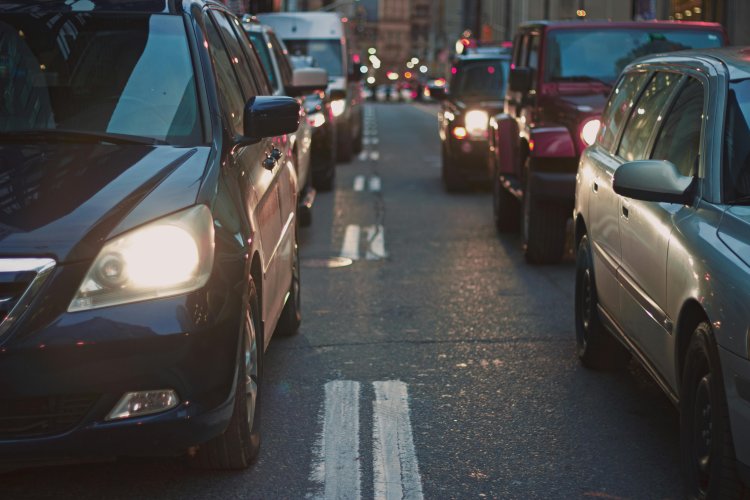Car Maintenance for Accident Prevention: Essential Checks Before You Drive
Avoid road accidents through essential car maintenance checks. Use this checklist when inspecting your vehicle before hitting the road
Share this Post to earn Money ( Upto ₹100 per 1000 Views )

According to the World Health Organization, road accidents are the eighth leading cause of death worldwide. This may cause injury not only to you or your loved ones but also to innocent bystanders. When you get into a road accident, especially involving another vehicle or a person, you may be liable under the law for injuries.
Driving is something most people do every day, sometimes for hours. It comes so naturally that basic checks that keep a car running smoothly can be easily forgotten. Owning a vehicle means that you are also responsible for its maintenance. As they say, "Prevention is better than cure," so before you hit the road, there are some maintenance checks that you can do on your own.
Importance of Car Maintenance for Accident Prevention
Improper vehicle maintenance is a relatively common cause of car accidents. Thus, some accidents can easily be prevented with routine checks. You'll never know if any parts are not in their best shape anymore without inspecting your car at least once a month. Malfunctions often lead to accidents.
Some preventable accidents that can happen while driving include tire blowouts, vehicle rollovers, power steering failures, engine failures, brake failures, or even low light accidents from broken headlights.
Accidents aren't limited to driving. In fact, slip and fall accidents are also a concern, whether it’s in your garage, while inspecting your vehicle, or in parking lots. Ensuring your tires are properly inflated and your brakes and headlights work well can help you avoid these accidents both on the road and in environments where you might lose your footing due to vehicle malfunction or poor visibility.
5 Essential Checks Before You Drive
It is easy to give your vehicle a one-over. Whether you are driving on a daily or going on a long drive, being safe is always a good choice. The five things you need to check before you head out include tires and tread depth, brakes, lights, fluid levels, and windshield and wipers. Below are more in-depth tips for assessing them.
1. Check tire pressure and tread depth
Use a tire pressure gauge to measure the pressure in each tire, comparing it to the recommended pressure listed in your vehicle's manual or on a sticker inside the driver's door jamb. You can also get your tire pressure checked at gasoline stations.
For tread depth, measure the grooves of the tires. If the tire tread depth is less than 2/32 inches, it's time to replace your tires. You may also use a tread depth gauge or the built-in tread wear indicators on your tires, ensuring the tread depth is above the legal minimum and even across all tires. If the pressure or tread depth is low, inflate the tires or consider replacing them.
2. Test brakes for responsiveness
Warm up the brakes by driving and making gradual and emergency stops, ensuring the vehicle halts smoothly without pulling to one side. Pay attention to any unusual sounds or sensations and, if in doubt, have a professional mechanic inspect the brakes.
3. Ensure all lights are working
Inspect external and interior lights, including signals, brakes, and reverse lights. Have someone assist you in confirming that the signal and brake lights work while you activate them. Replace faulty bulbs or fuses promptly to maintain optimal visibility and road safety.
4. Check fluid levels
Check all the fluids your car needs, including oil, coolant, and brake fluid. Let the engine cool and locate dipsticks or reservoirs for oil, coolant, and brake fluid. Maintain standard levels per your car's manual, topping up as needed with the correct fluids. Regular checks ensure vehicle performance and longevity.
5. Inspect windshield, wipers, and washer fluid
Check your wiper blades for cracks or signs of wear and tear. Clean them occasionally, especially when driving under harsh weather conditions. Ensure the washer fluid level is adequate and top up if needed with suitable fluid. Regular checks maintain clear visibility.
3 Tips for Maintaining a Safe Vehicle
After following the checklist above when inspecting your vehicle, here are some more reminders to avoid car accidents.
1. Get a regular maintenance check from your provider
Vehicle upkeep can help prevent expensive repairs and accidents. While you can do basic checks yourself, you should also get regular maintenance and tune-ups from professionals, even when nothing seems wrong.
Consider asking for a digital vehicle inspection, which provides detailed photos and videos of potential problem areas to give you a clearer understanding of your vehicle's condition. This can help you ensure that your car gets other items repaired and catch warning signs before they lead to serious issues.
2. Keep an emergency kit in your vehicle at all times
You'll never know when disaster strikes, so always have an emergency kit in your car. The kit should include essentials like a flashlight, first-aid kit, jumper cables, multipurpose tools, and a basic toolkit consisting of pliers, screwdrivers, and duct tape. You can add personal items to your emergency kit, like blankets, water, non-perishable snacks, and a phone charger.
Including items like a reflective vest and non-slip footwear can also help prevent slip and fall accidents, especially when working around your vehicle in poor weather or on uneven surfaces.
3. Stay focused and keep your eyes on the road
Even with a well-maintained vehicle, if you are not focused on the road you're driving on, you may still end up in an accident. Staying focused is crucial for safe driving. Your reaction time to unexpected road hazards and traffic situations is also crucial in driving safely.
By staying attentive, you reduce the risk of accidents and avoid harming yourself and others on the road. Keep everyone safe by being distraction-free.
Keep Road Accidents at Bay
To conclude, make sure to check your vehicle before you drive. Getting into an unwanted road accident can injure you or others, but things can still get worse. If found responsible for what happened, you may get sued for the damage that resulted from the accident—whether it's property damage or a physical one. In such cases, consulting a car accident or slip and fall lawyer can help protect your rights and guide you through the legal process.
Do not forget to check your vehicle at least once a month. Get your car tuned up even before issues arrive. Always keep an emergency kit inside your vehicle, and stay focused when driving. Even if your car is well maintained, you may still get into an accident if distracted. Remember, as the driver, it is your responsibility to ensure your safety and that of others on the road.
If you do get into an accident, do not hesitate to call 911. While waiting for the authorities to arrive, get names, addresses, telephone numbers, and driver's license numbers from those involved. If they are covered by insurance, get their policy number. If you have a camera or cellphone, take photographs of the damage and the accident scene.

 samamsworth
samamsworth 















